
Welcome to the Soil Navigator DSS
A Decision Support System for assessing and optimizing soil functions
What is the Soil Navigator DSS?
One of the 3 main pillars of the Landmark project was the development of a Decision Support Tool (DSS) for farmers and farm advisors, which we call the Soil Navigator DSS (Debeljak et al., 2019). The Soil Navigator is an agricultural decision support system (DSS) for assessing and optimizing soil functions. Most agricultural DSS are focused on short-term goals for the next growing season, such as increasing plant available nutrients or optimizing crop yield, whereas other important soil functions such as water purification and regulation, carbon sequestration and biodiversity provision are neglected. Making the right management decisions for long-term sustainability is therefore challenging, and farmers and farm advisors would greatly benefit from an evidence-based DSS targeted for assessing and improving the supply of several soil functions simultaneously. The Soil Navigator DSS provides a menu of user-friendly soil management strategies to manage the soil functions on individual fields on the farm (local scale). The menu is stratified by pedo-climatic zones, land uses ( cropland and grassland) and farming systems.
How can I make the most of my land with the Soil Navigator?
The Soil Navigator DSS may assist farmers and farm advisors who are seeking answers to the above question by going through the following three steps:
- assessing the initial supply of the five main soil functions based on data obtained from the LANDMARK database coupled with data entered by the user;
- providing a number of management recommendations to improve specific soil functions based on the demand and importance entered by the user;
- evaluating the resulting supply of soil functions based on user preferences for the suggested management recommendations.
Watch our teaser:
Methodology
In the designing of the Soil Navigator DSS qualitative multi criteria decision analysis has been applied using Decision EXpert (DEX) integrative modelling methodology. Five teams of scientific experts have structured, calibrated and validated DEX models for the five soil functions: primary productivity, water purification and regulation, carbon sequestration and climate regulation, nutrient cycling and biodiversity and habitat provision. Subsequently, the DEX models have been integrated into the Soil Navigator DSS to permit the assessment of these soil functions simultaneously, and to provide management recommendations for improving the supply of prioritized soil functions.
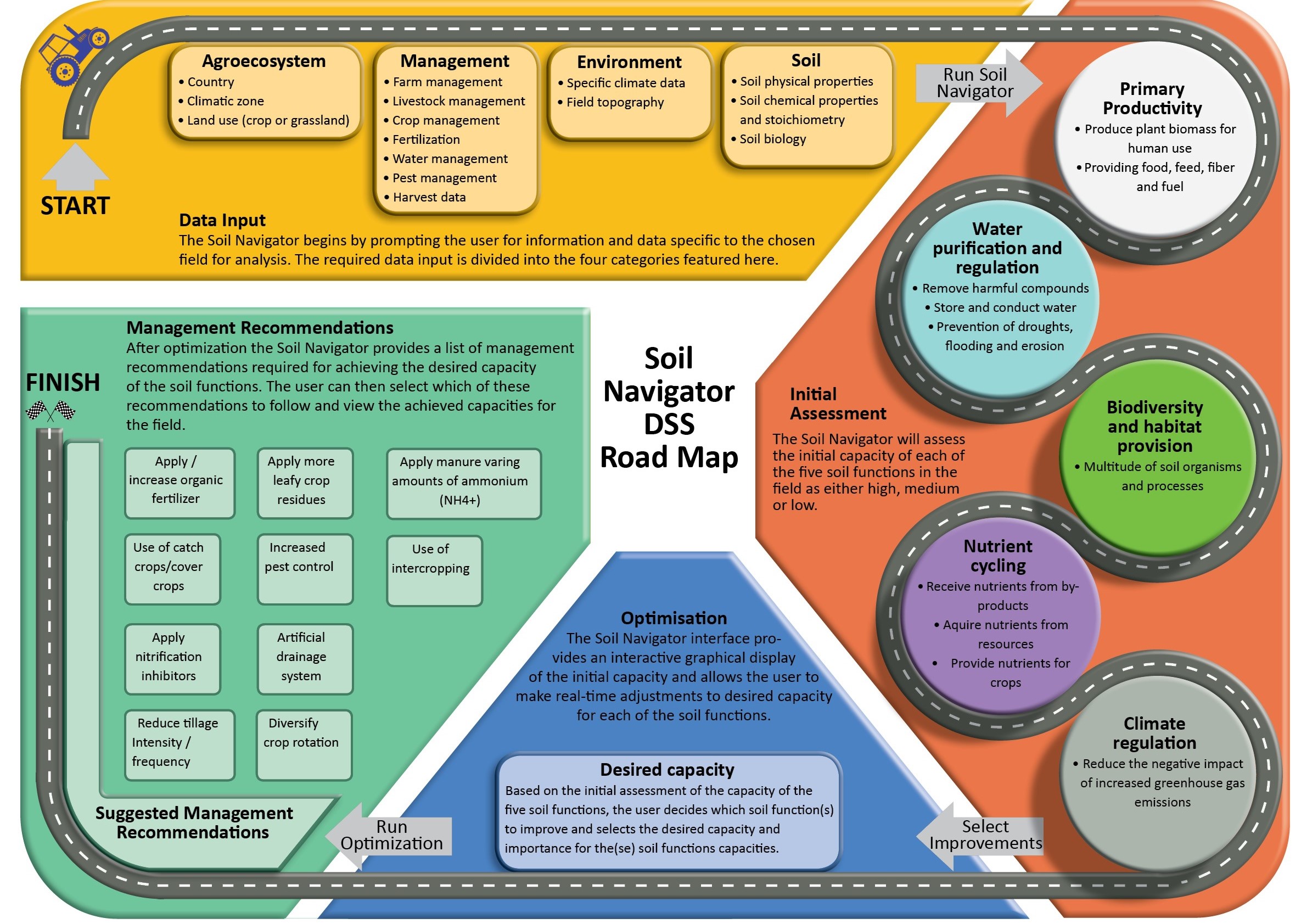
Future perspectives for the Soil Navigator DSS
- By including all five main soil functions, the Soil Navigator DSS has the potential to complement the Farm Sustainability Tools for Nutrients included in the Common Agricultural Policy 2021-2027 proposal adopted by the European Commission.
- It could be used as an educational tool for farmers, farm advisors and students.
- Have an idea? Email us!
Who is behind the Soil Navigator DSS?
The Pillar 1 team is coordinated by Prof Christian Bugge Henriksen (University of Copenhagen) and is a collaboration between all the Landmark project partners. Farmers and extension services participating in LANDMARK were actively involved in developing and testing the tool since the beginning.
History of the Soil Navigator DSS development
FIRST PHASE 2015-2019 – Developing the Soil Navigator (task 5.1)
Led by Pillar 1 leader Christian Bugge Henriksen (UCPH)
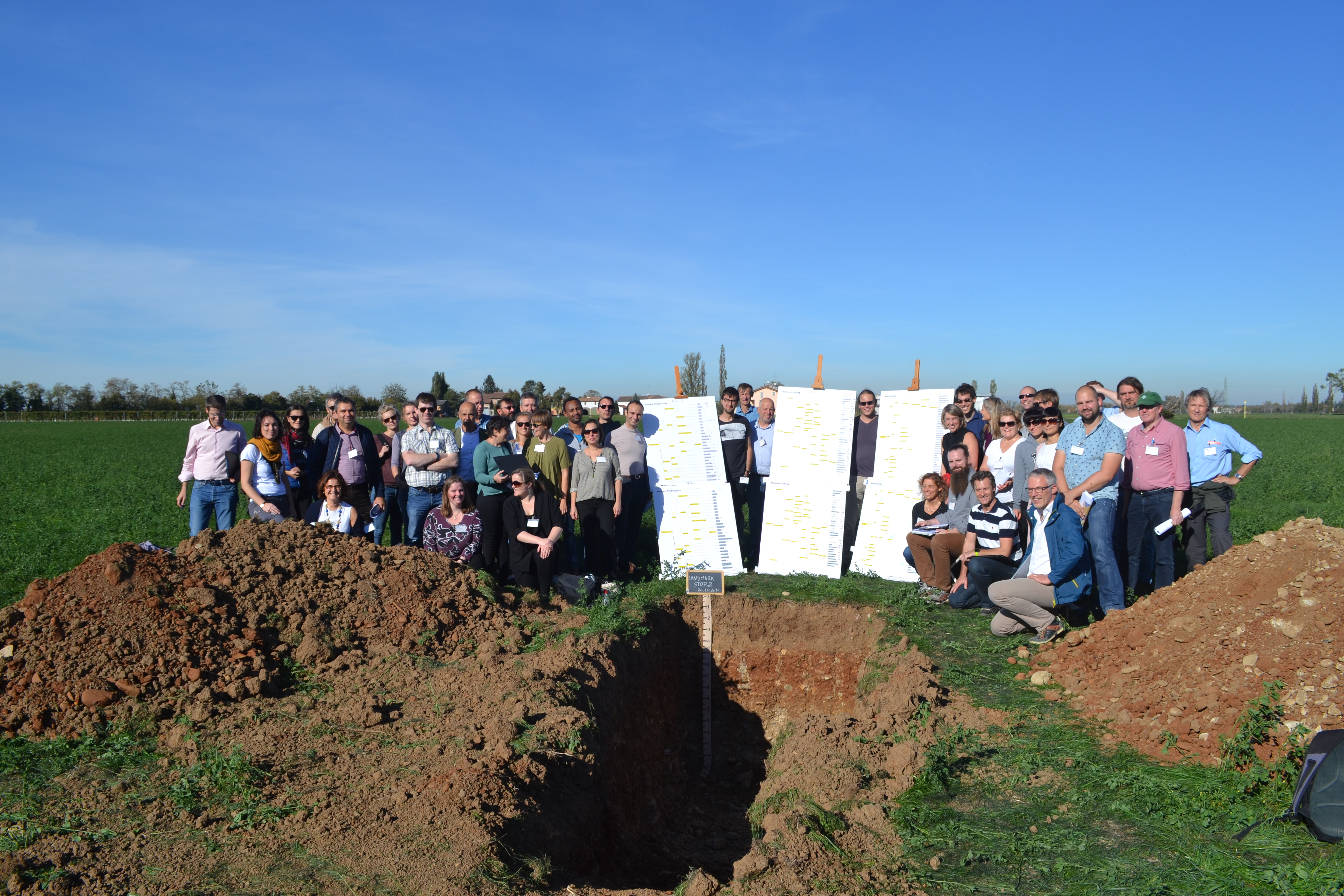
October 2017:
The LANDMARK Consortium together with the Stakeholder Steering Committee members evaluated for the first time the DEX models of five soil functions during the field exercise in farm Burini, Bibbiano, Reggio-Emilia, Italy. More info on the day here.
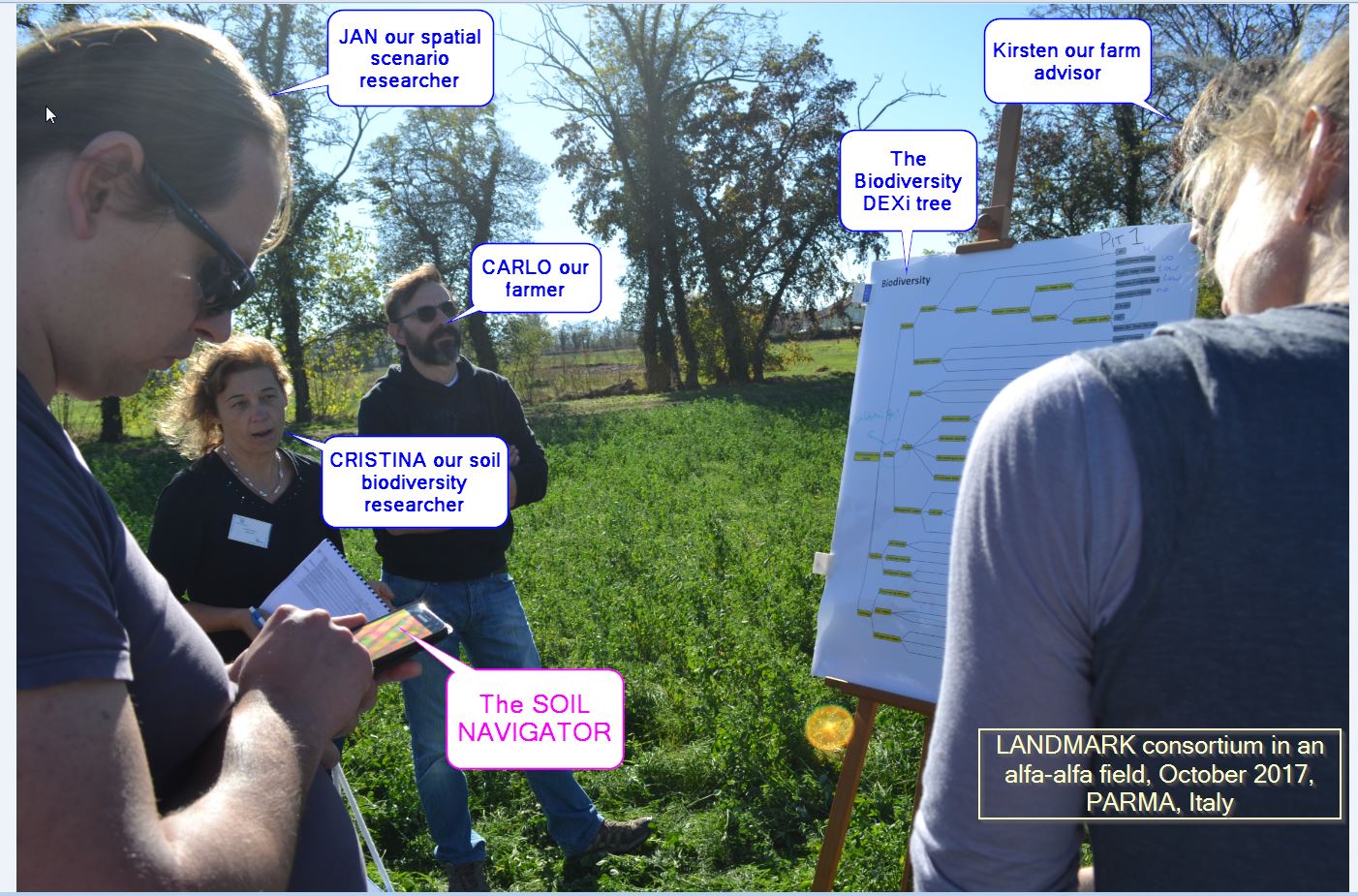
October 2017.
The LANDMARK consortium together with the SSC members, the Burini farmer, the Emilia- Romagna region colleagues of the monitoring system and the EIP-AGRI OGs partners of PRATI-CO, October 2017, Bibbiano, Reggio-Emilia, Italy. Discussion and evaluating the DEX models of soil functions with the farmer in front of the hierarchical structure of the soil biodiversity model.
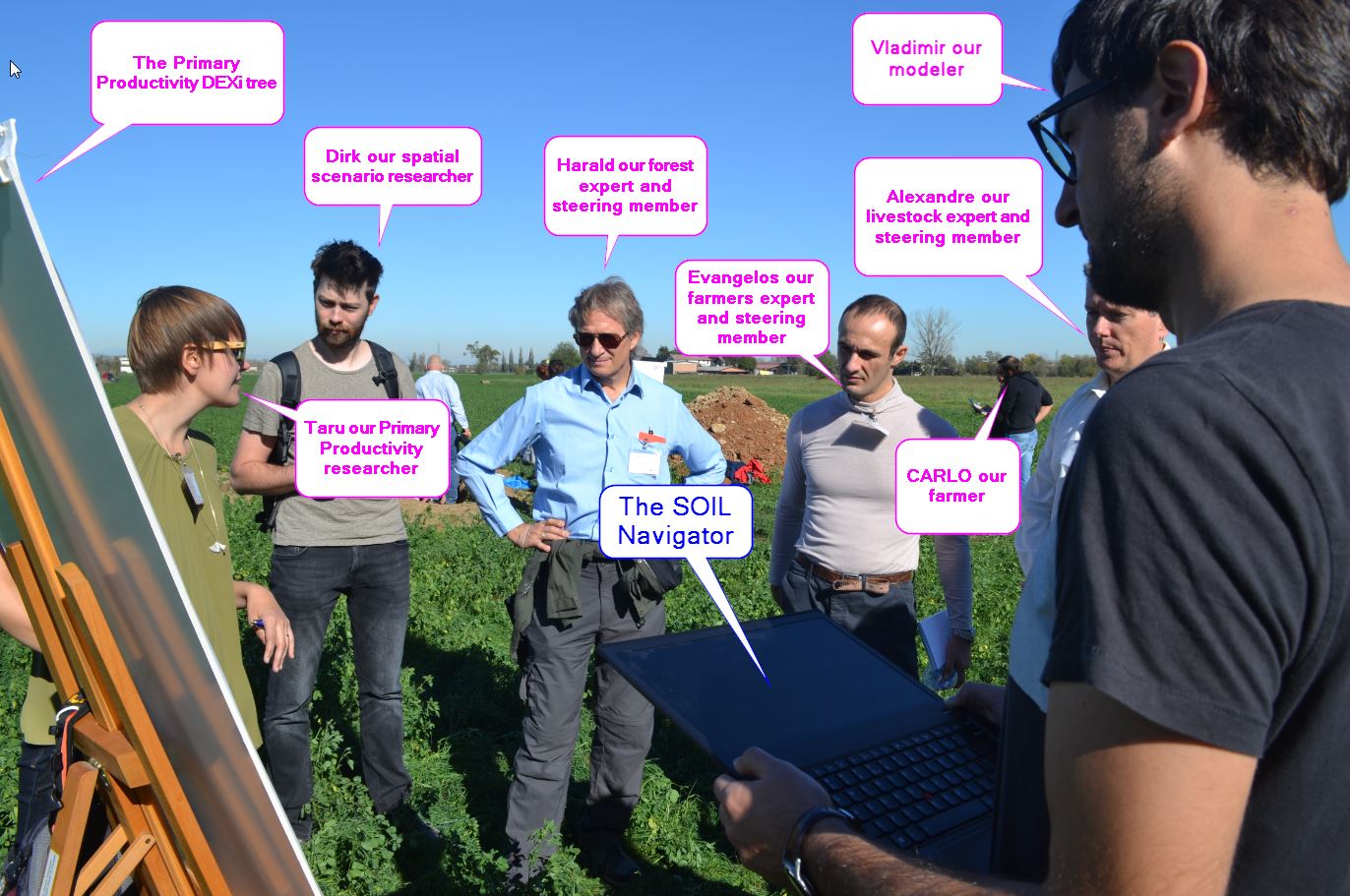
October 2017:
Discussion and evaluating the DEX models of soil functions with the farmer, researchers and Stakeholder Steering Committee Members in front of the hierarchical structure of the Primary Productivity model.
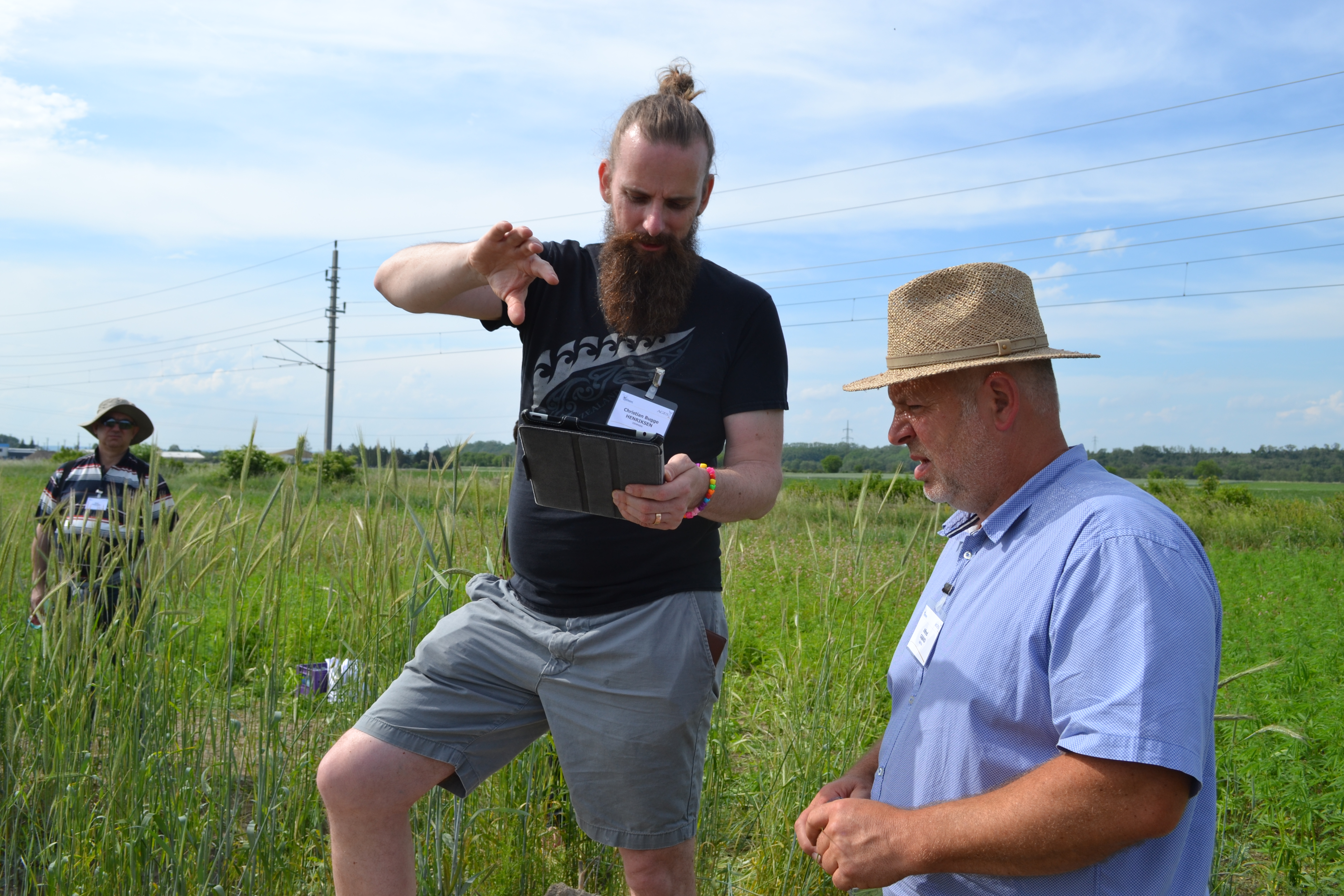
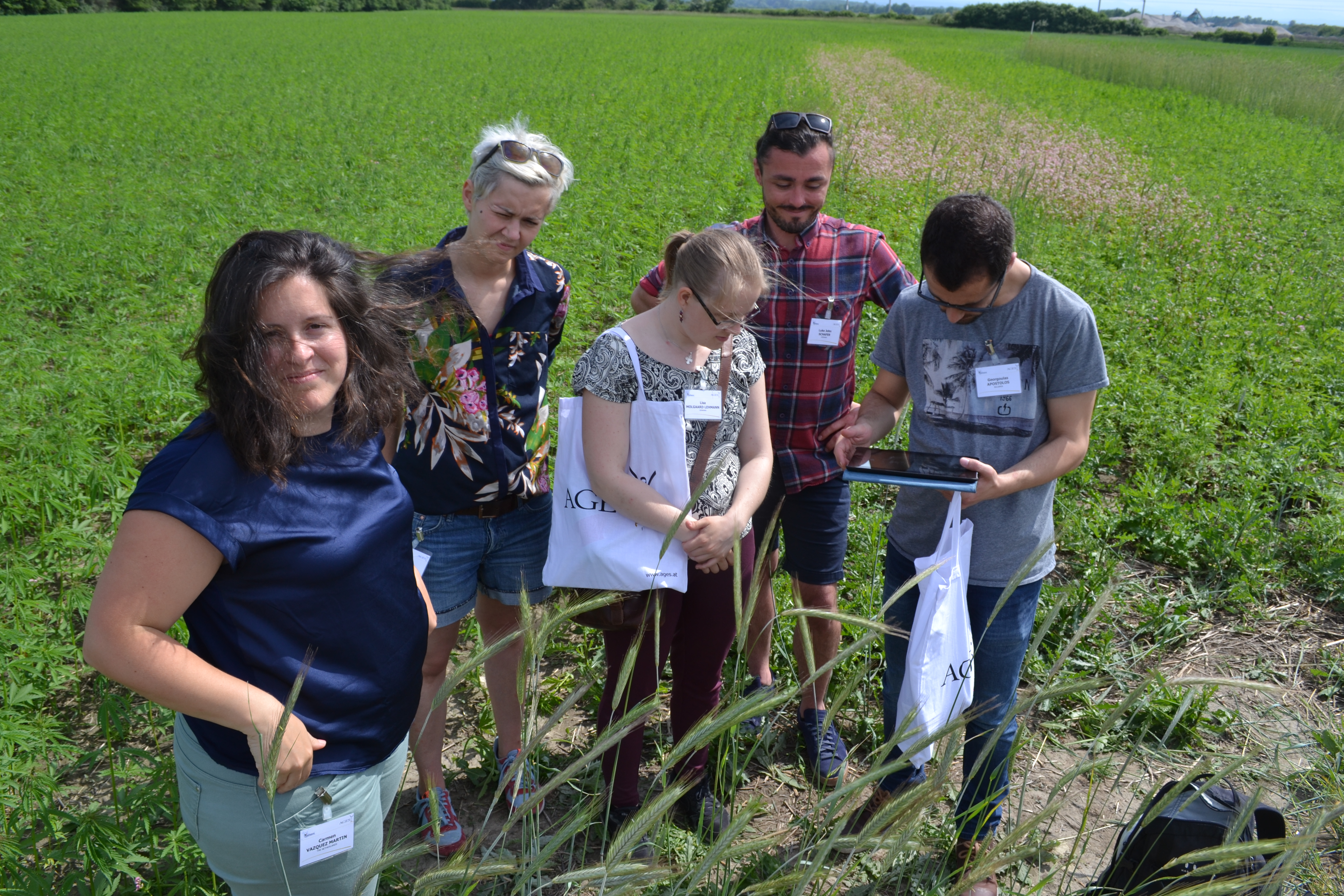
May 2018:
The Landmark team visited Alfred Grand’s farm (one of our Steering Committee member) and tried the Soil Navigator DSS in two of his fields.
October 2018:
The LANDMARK Consortium together with the Stakeholder Steering Committee members conducted a second evaluation workshop for the soil navigator during the field exercise in grassland and in cropland fields of a farm in Denmark. More info on the day here.
SECOND PHASE 2018-2019 – Testing and evaluation of the SOIL NAVIGATOR Decision Support Tool (task 5.2)
Led by Task leader Talke Heidkross and Kirsten Madena from the Chamber of Agriculture of Lower Saxony (CALS)

October 2018:
The Danish soil pedologist is explaining the characteristics of the soil and the farmer is sharing the information on the land use and soil management practices applied.

October 2018:
The Danish farmer is trying the soil navigator tool together with our Slovenian modeller Vladimir.
In spring 2019 the database of suggested management options to be included in the soil navigator was completed.
In addition, the soil navigator was translated to German, French and Danish for the country-specific field evaluations, and additionally to Italian, Spanish, Romanian. The soil navigator is now available in seven languages!
In spring-summer 2019 several soil navigator evaluation workshops, as well as the on-farm tests, were in held EU countries (Austria, Denmark, France, Ireland, Germany).
Launch of the Soil Navigator DSS:
- 26th of August 2019 at the SOIL HORIZON workshop in Wageningen, The Netherlands
- 23rd of October 2019 at the LANDMARK Final Policy Conference in Bruxelles, Belgium
References & Material
- REPORT Decision Support Tool for Soil Husbandry, stratified by pedo-climatic zone and land use – LANDMARK Deliverable 5.1
- PAPER Debeljak et al. (2019), A field-scale decision support system for assessment and management of soil functions, Frontiers.
- FAST FACT Introduction to the Soil Navigator DSS
- A0 poster/infographic
- Soil Navigator DSS Banner
What they say about us:
- EIP AGRI https://ec.europa.eu/eip/agriculture/en/news/measuring-soil-functions-soil-navigator
- Wageningen University & Research https://www.wur.nl/en/show-longread/Soil-navigator-a-tool-for-optimising-soil-usage.htm
- EU Horizon platform https://ec.europa.eu/info/funding-tenders/opportunities/portal/screen/opportunities/horizon-results-platform/14471
- 4returns https://4returns.earth/tools/soil-navigator-eu/






